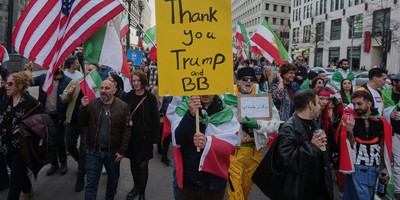Remember how Seattle voted in a minimum wage hike last year? Well, Seattle residents are slowly waking up to the laws of economics and feeling the unintended consequences of the law -- consequences that conservatives have decried for decades. Those consequences are now making both workers and employers jump through irrational hoops in order to succeed in the Seattle economy.
The aim of having a minimum wage is to get people's incomes up, to lift them out of poverty and wean them from government dependence. It's a noble and uncontroversial goal. But the minimum wage has always backfired on workers, and in Seattle it's been no different. Seattle workers are seeing higher wages, yes -- but many of them are now asking to work fewer hours. Why? Because higher income means that workers will become ineligible for welfare assistance. Jason Rantz, a Seattle resident, explained it over the radio:
“If they cut down their hours to stay on those subsidies because the $15 per hour minimum wage didn’t actually help get them out of poverty, all you’ve done is put a burden on the business and given false hope to a lot of people,” said Jason Rantz, host of the Jason Rantz show on 97.3 KIRO-FM.
So the policy that was intended to raise people's incomes is now incentivizing them to seek lower incomes. How's that for smart policy?
Government data show that the law has not succeeded in moving people off of government assistance. In March, Seattle's Basic Food program supported 130,851 people. In April, the number was 130,376.
Sadly, Seattle has also seen a number of well-known restaurants close in recent months. Some restaurants are having to slap a 15 percent surcharge on their customers in order to cover the higher wages. If Seattlites prove unwilling to pay it, you can expect more restaurants to eventually shut down.
Recommended
The minimum wage law, voted in by ballot initiative in 2014, unfolds in several stages. The first stage began back in April, when minimum wage jumped to $11 an hour. By 2018, it will have climbed to $15 an hour. Only time, however, will reveal the full impact that the law has on Seattle residents.
But there's more. Despite the early evidence that this law hurts workers, other major cities have recently followed Seattle. Both San Francisco and Los Angeles passed $15 minimum wage laws this year, and New York City is currently debating one as well.
The self-inflicted wounds just keep coming.

























Join the conversation as a VIP Member